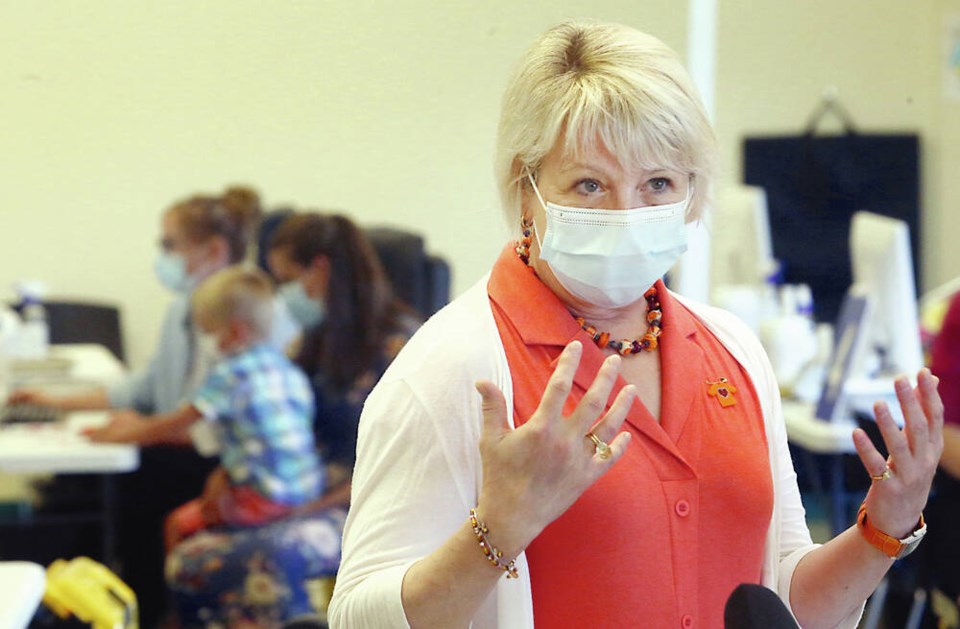At the end of December 2021, B.C.’s provincial health officer was looking to 2022 as the year the province might see the end of the emergency phase of the COVID-19 pandemic.
A year later, Dr. Bonnie Henry is approaching 2023 with the same hope.
Henry said the pandemic remains a concern, with experts forecasting rising death tolls among the under-vaccinated with little natural immunity to the disease.
“We’re still, I believe, in the emerging phase of the pandemic,” she said in an interview.
“It’s still a concern internationally as we know, as we’re seeing what’s happening in China and other places right now, but I do think as we get through this respiratory season, we will come out of the pandemic phase.”
Past years’ hopes that SARS-CoV-2 would become just another respiratory virus have been scuttled by the emergence of new variants and subvariants, including the highly transmissible and vaccine-resistant Omicron.
Henry is not yet sure what regime of COVID boosters might be required in 2023.
With much work being done on next-generation vaccines, she imagines a universal flu and universal COVID vaccine that would only be required periodically.
“My hope — the optimist in me — is that as we get through 2023 … we may only need to provide a booster once a year, or maybe less than that, or maybe just once a year for the highest risk.”
The number of people infected by COVID has been getting smaller, Henry said. But the fact that infections continue to rise and fall serves as a reminder for people — especially those who are vulnerable to severe illness — to remain vigilant with vaccination, she said.
She encourages anyone who hasn’t received a bi-valent booster to get one. “That is of major importance.”
Even just two doses of the vaccine can make a big difference in preventing severe illness, she said.
“As we go through this next year, we’re going to have to still be flexible and adapt to what we see happening,” Henry said.
>>> To comment on this article, write a letter to the editor: [email protected]




